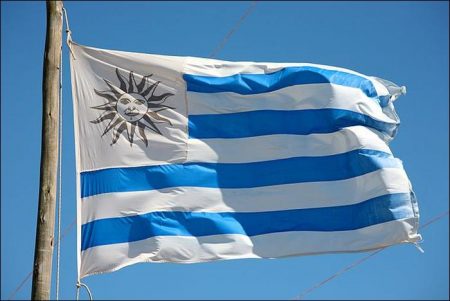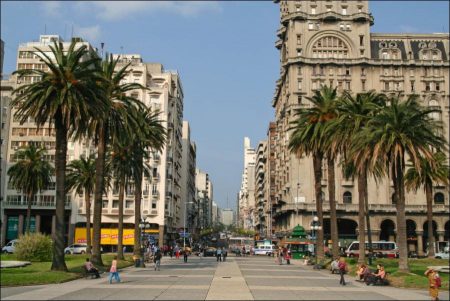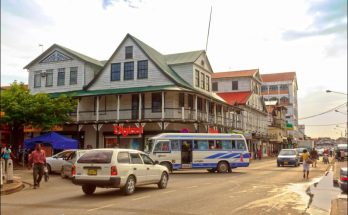As South America’s smallest Spanish-speaking country, Uruguay is often overlooked by tourists visiting the region. However, with its vibrant nightlife and stunning coastline Uruguay is well worth discovering. Due to its strategic position on the north shore of the Río de la Plata, Uruguay’s territory was hotly contested from the first European settlements, initially by Spain and Portugal, then by the emerging regional powers of Argentina and Brazil.
A delightfully low-key, hospitable place, modern Uruguay enjoys a high standard of living but draws fewer tourists than neighbouring Brazil and Argentina. Visitors here can melt into the background and experience the everyday life of a different culture – whether riding horses under the big sky of Uruguay’s sparsely populated interior or strolling with throngs of mate-drinking locals along Montevideo’s 15km-long (9 miles) beachfront.
The three most popular destinations are the culturally vibrant capital Montevideo, the picturesque 17th-century port of Colonia, and the trendy coastal resort Punta del Este, which lures jetsetters from around the globe to its sandy beaches, fine restaurants and party-till-you-drop nightclubs. Visitors with more time should explore the dunes and lagoons of Uruguay’s long Atlantic coastline, soak in the hot springs near Salto, or spend the night at a tourist estancia amidst the wide-open grandeur of gaucho country.
All About Uruguay
Uruguay, officially the Eastern Republic of Uruguay (Spanish: República Oriental del Uruguay), is a country in the southeastern region of South America. It is bordered by Argentina to its west and Brazil to its north and east, with the “Río de la Plata” (River of Silver) to the south and with the Atlantic Ocean to the southeast. Uruguay is home to 3.3 million people, of whom 1.8 million live in the metropolitan area of its capital and largest city, Montevideo. With an area of approximately 176,000 square kilometres (68,000 sq mi), Uruguay is geographically the second-smallest nation in South America after Suriname.
Uruguay was inhabited by the Charrúa people for approximately 4000 years before the Portuguese established Colonia del Sacramento, one of the oldest European settlements in the country, in 1680. Montevideo was founded as a military stronghold by the Spanish in the early 18th century, signifying the competing claims over the region. Uruguay won its independence between 1811 and 1828, following a four-way struggle between Spain, Portugal, Argentina and Brazil. It remained subject to foreign influence and intervention throughout the 19th century, with the military playing a recurring role in domestic politics until the late 20th century. Modern Uruguay is a democratic constitutional republic, with a president who serves as both head of state and head of government.
Uruguay is ranked first in Latin America in democracy, peace, lack of corruption, e-government, and is first in South America when it comes to press freedom, size of the middle class and prosperity. On a per-capita basis, Uruguay contributes more troops to United Nations peace-keeping missions than any other country. It ranks second in the region on economic freedom, income equality, per-capita income and inflows of FDI.
Uruguay is the third-best country on the continent in terms of HDI, GDP growth, innovation and infrastructure. It is regarded as a high-income country (top group) by the UN. Uruguay is also the third-best ranked in the world in e-Participation. Uruguay is an important global exporter of combed wool, rice, soybeans, frozen beef, malt and milk.
The Economist named Uruguay “country of the year” in 2013 acknowledging the innovative policy of legalizing the production, sale and consumption of cannabis. Same-sex marriage and abortion are also legal, leading Uruguay to be regarded as one of the most liberal nations in the world, and one of the most socially developed, outstanding regionally and ranking highly on global measures of personal rights, tolerance and inclusion issues.
Visits: 67




